
IPPF works to ensure that every woman and girl has the human right to choose to be pregnant or not and we will continue to supply and support safe and legal abortion services and care. We are committed to reducing the number of deaths of women and girls who are forced to turn to unsafe abortion methods. Make Abortion Safe. Make Abortion Legal. For all Women and Girls. Everywhere.
Articles by Abortion Care
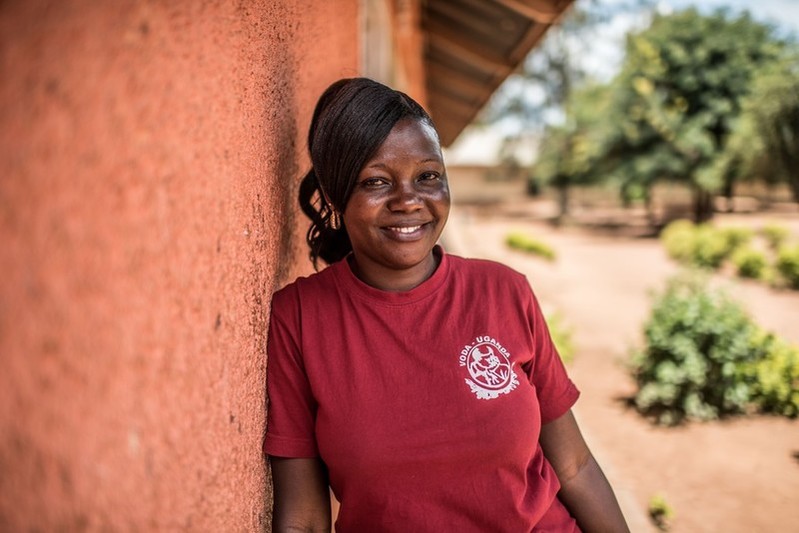
Changing perceptions about abortion in rural Uganda
In the three years since the VODA Uganda project started there have been some incredible results. The project has brought about changes in perceptions about abortion in the community and schools, bringing community leaders and health workers on board, explaining the problems of unsafe abortion and directing girls and women to post-abortion care services. VODA (volunteers of development assistance) is a local, grassroots project funded by the Safe Abortion Action Fund (SAAF). The Safe Abortion Action Fund (SAAF) which is hosted by IPPF, was set up in 2006 in order to support grass-roots organisations to increase access to safe abortion. Photography © IPPF/Tommy Trenchard
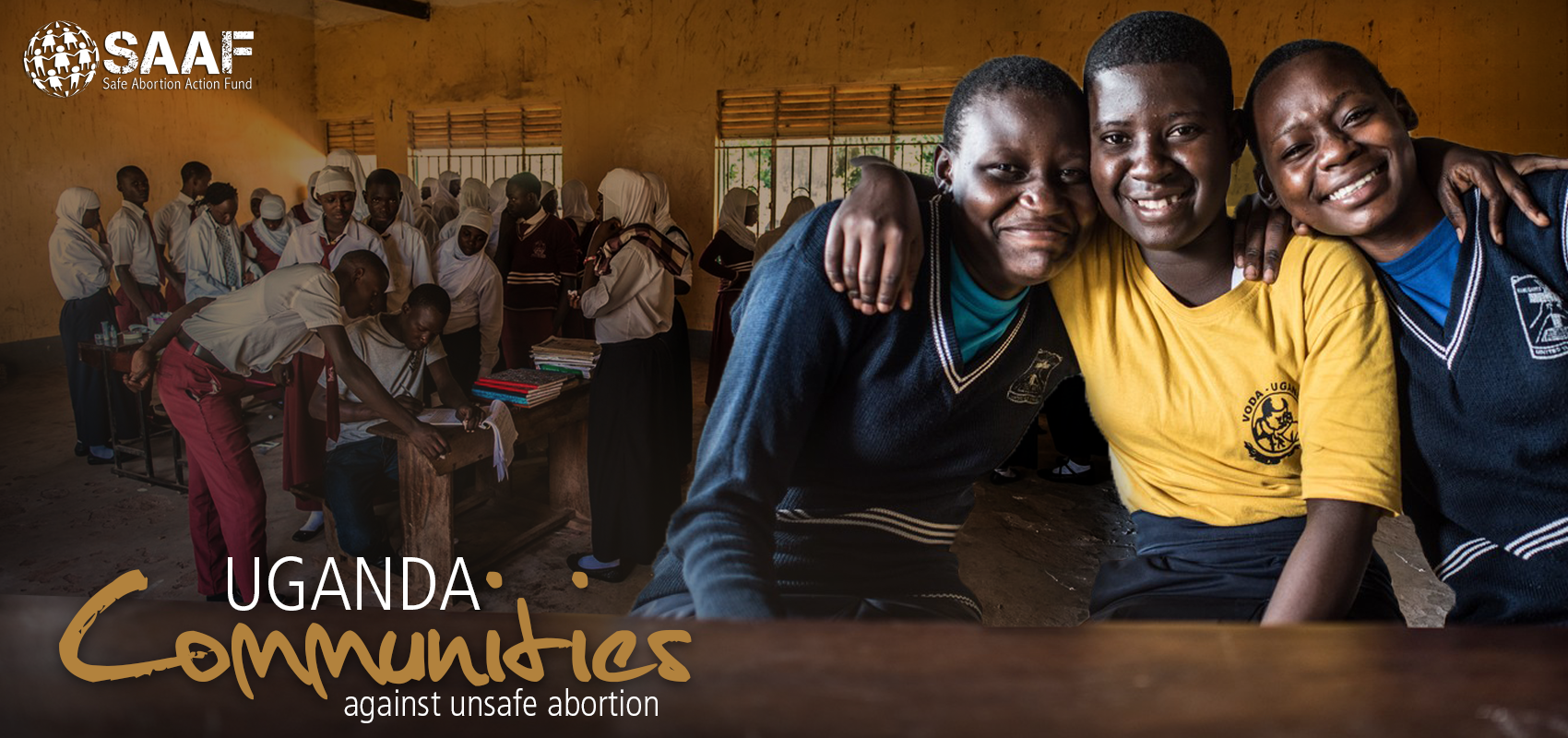
Empowering school students for change
Stopping unsafe abortion and stigma through education Rural communities in Uganda have a high prevalence rate of gender inequality, sexual abuse and incest. There is little provision of sexual and reproductive health services and abortion is highly restricted. The Safe Abortion Action Fund, hosted by IPPF, is financing the grassroots organization, VODA, to empower young people as changemakers in their schools and communities. With training and support, peer educators have been educating friends about sexual and reproductive health, and local health providers are serving women in need. Death from unsafe abortion was once a widespread problem but through the power of peer education, these have almost disappeared and community attitudes towards safe abortion has been transformed. READ MORE Maria Midwife Grace "I took care of Anne after she tried an unsafe abortion, she was bleeding a lot, she may have even died. She had been raped ." READ MY STORY Margret Mother Margret "I lost my daughter, Gladys. She was 16 and studying at senior secondary school. I didn't know she was pregnant" READ MY STORY Mary COUNSELOR Mary "Sometimes we receive cases related to incest. I thank VODA for coming to aid these desperate young girls who have had experiences like mine." READ MY STORY John Owoli RELIGIOUS LEADER John Owoli "I decided to join a campaign that focuses on stopping unsafe abortion because I just want to save lives. Stigma was a very widespread problem here." READ MY STORY See more about the Safe Abortion Action Fund in Uganda
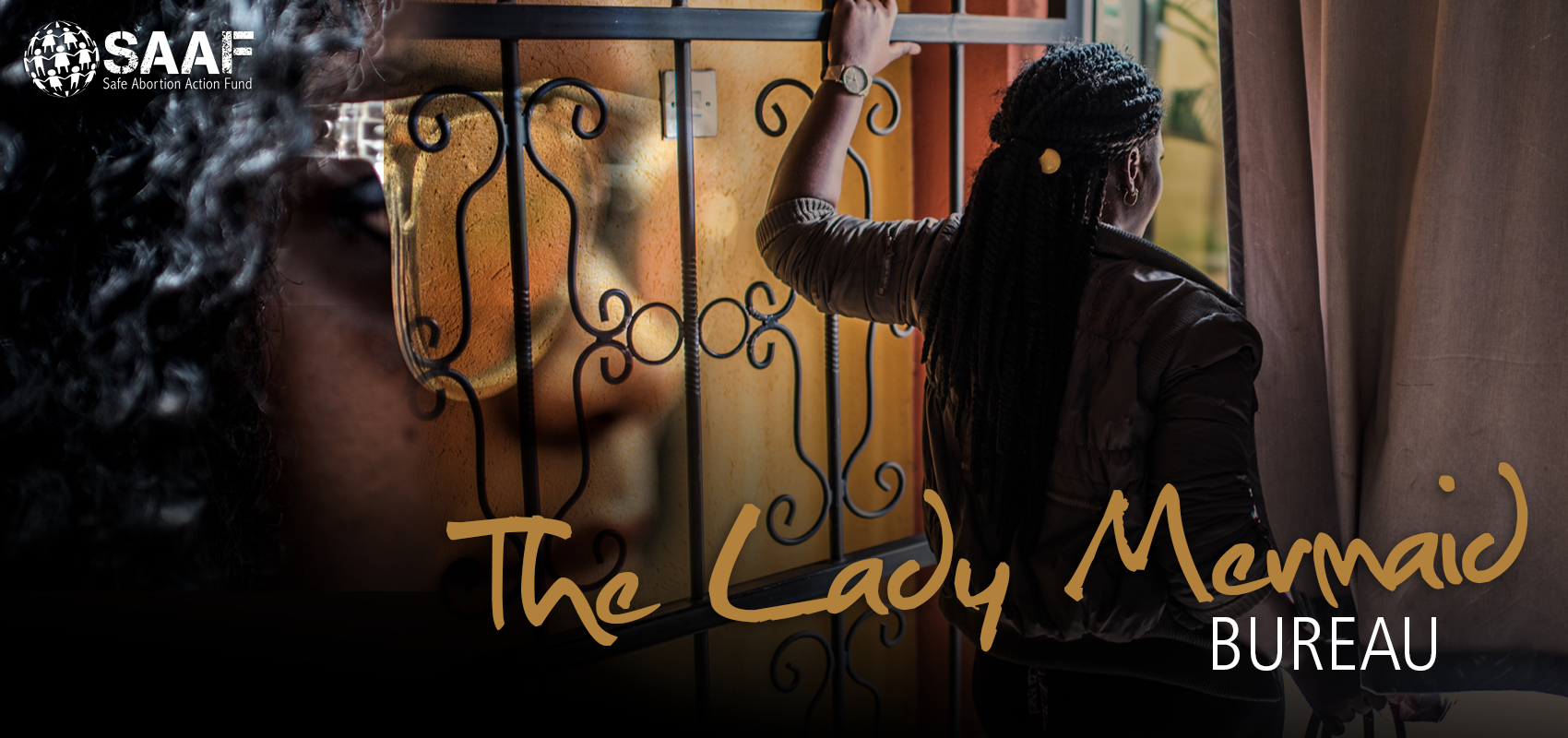
Sex workers in Uganda: fighting violence and inequality
Make abortion safe. Make abortion legal In Uganda, 42% of all pregnancies each year are unintended. The country's weak economy is exacerbated by high levels of gender inequality and poor access to jobs for women. Many women who turn to sex work are at risk of abuse and often rape. Abortion is heavily restricted in Uganda and clandestine safe services are very costly. This results in further poverty for many sex workers and sometimes unplanned pregnancies or even death from unsafe abortion.IPPF hosts the Safe Abortion Action Fund (SAAF), and the Lady Mermaid Bureau - a local grassroots project - is funded by SAAF to empower sex workers with the legal support and reproductive health services they need to make informed decisions. READ MORE Joanna SEX WORKER Joanne "We are not respected - some police rape us. Many have got pregnant, including me." READ MY STORY Masitula SEX WORKER Masitula "I have no family left but this project has changed my life. Now I have a friend." READ MY STORY Debora SEX WORKER Debora "Sex work isn't easy. You don't fit in society because others see you as someone who can be neglected" READ MY STORY Pretty Lynn SEX WORKER Pretty Lynn "Being a sex worker is like a curse. People look at you like you are the worst thing that can happen in society." READ MY STORY See more about the Safe Abortion Action Fund in Uganda
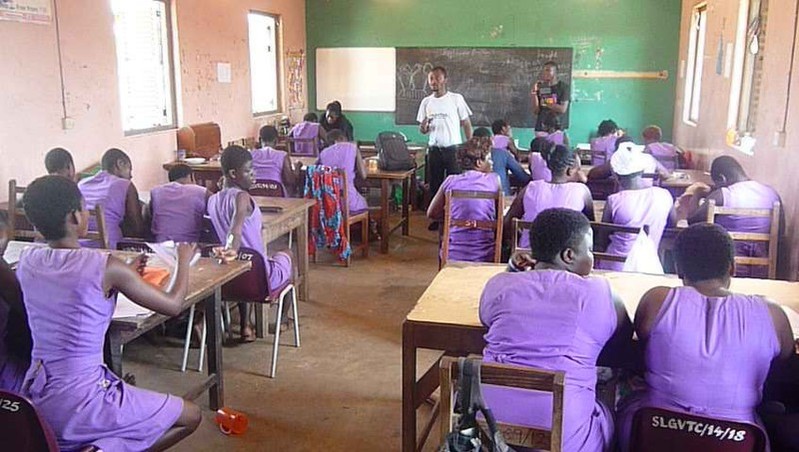
What are young people around the world learning about abortion?
A recent Guttmacher Institute study of 15-17 year olds in Kenya1 shows that, shockingly, only 2% of students interviewed reported receiving fully comprehensive sexuality education. Almost all students (93%) considered sexuality education to be useful in their personal lives, and indeed a quarter of those interviewed were already sexually active. Despite this, the reality is that comprehensive, rights-based education is simply not being provided – with teachers being under-trained and often misinformed, and both teachers and students reporting embarrassment around broaching the subject of sexuality. One topic which is often left out of education programmes altogether, due to this discomfiture and social stigma, is abortion. Where Kenyan teachers did address the subject, “two thirds strongly emphasized that abortion is immoral”. A similar tendency was found in UNESCO’s review of sexuality education programmes in East and Southern Africa2; where the topic of abortion was either neglected, or was taught in ways deemed to be ‘inappropriate’. Information about abortion was often found to be inaccurate and/or judgemental – for example in Uganda, “Value statements (e.g. ‘abortion is murder’ and ‘masturbation is deviant’) are presented as if they are factual rather than religious perspectives.” The lack of practical information on how to avoid unwanted pregnancy, and on how to access safe abortion, along with the shaming of those who seek abortion is particularly worrying in a region where unsafe abortion is rife. Approximately 1.6 million women in Africa are treated annually for complications resulting from unsafe abortion3 – often due to lack of education and information on safe methods. Reports from the UK and Ireland also show that young people are being given false and stigmatising information about abortion – and a student in Canada recently reported a lesson in which an anti-abortion speaker compared abortion to the Holocaust. Noting that abortion is often left out of sexuality education programmes completely, or covered in ways which misinform, confuse or upset young people, IPPF has created a comprehensive resource to help educators tackle the subject Because we know that a lack of information about contraception and abortion negatively affects young people’s health, we think it’s important that even ‘sensitive’ subjects like this are covered openly and accurately. Only then can young people make informed decisions. Subscribe to IPPF's newsletter! References: 1 https://www.guttmacher.org/fact-sheet/sexuality-education-kenya 2 http://unesdoc.unesco.org/images/0022/002211/221121e.pdf 3 https://www.guttmacher.org/fact-sheet/facts-abortion-africa
Sex workers in Uganda find hope
The Safe Abortion Action Fund (SAAF) which is hosted by IPPF was set up in 2006 in order to support grass-roots organisations to increase access to safe abortion. One such organisation which received support under the last round of funding is called Lady Mermaid's Bureau. Joanne is a sex-worker who has been involved in the project run by Lady Mermaid's Bureau, funded by SAAF. "My name is Joanne, I have been a sex-worker for two years." Joanne was abused as a child and became pregnant at a very young age. She was forced to leave school with only a primary education and could not speak English very well. When she moved to Kampala from her village she was told she could get a good job but she had nowhere to stay and ended up becoming a sex-worker in order to support herself and her two children. While sex-work offers some financial support, the fact that it is illegal and that gender inequality is high in Uganda make sex workers very vulnerable to rape and violence. "The problems are very many. Men don’t want to pay. Someone uses you but he does not want to pay. We are being beaten, and there's a lot of stress and competition." "There is a lot of competition between sex workers. Sometimes you go on the streets and no man is going to buy you and you end up not earning a single coin. Other times, when that man buys you, he tells you the money, you negotiate when you go to the lodge the man does not pay you. That is the most hard thing because you need to feed your children, but someone does not pay you. The men beat us when we are in the lodges. They are rough, they don’t want to use condoms, you tell him to use a condom, and he does not want to use a condom. So they end up infecting you sometimes. My other sex workers most of them got infected through that. We are even being raped by policemen sometimes. They come on the streets to chase us away and if we stay on the streets to work, the policemen force you. When a policeman arrests you, he takes you to a police station because you don’t have money. He asks what you can offer if you want to leave jail. You will say, "I have nothing I don’t have money." So the only thing you can do is to have sex with him. Then he will release you. Women cells are not the same as the ones for men - sometimes you are there alone at night. So police cells are being used to rape women. He has not paid you so that is rape - he has just forced you. There are many women who got pregnant because of this rape. Even me. I have had two abortions." Joanne used local herbs to terminate her pregnancy which led to complications. Then her friend told her about Lady Mermaid's Bureau and they referred her to IPPF's Reproductive Health Uganda (RHU) who were able to help her. Since being involved with Lady Mermaid's Bureau Joanne has been taught English and computer skills and has also got access to contraception and legal support. She thinks that both sex-work and abortion should be legalised in Uganda to reduce the stigma that leads to violence and abuse. "At times men don't respect us as sex-workers. Because it is illegal they abuse you. If they legalise it, it will be good." Stories Read more stories about the amazing success of SAAF in Uganda
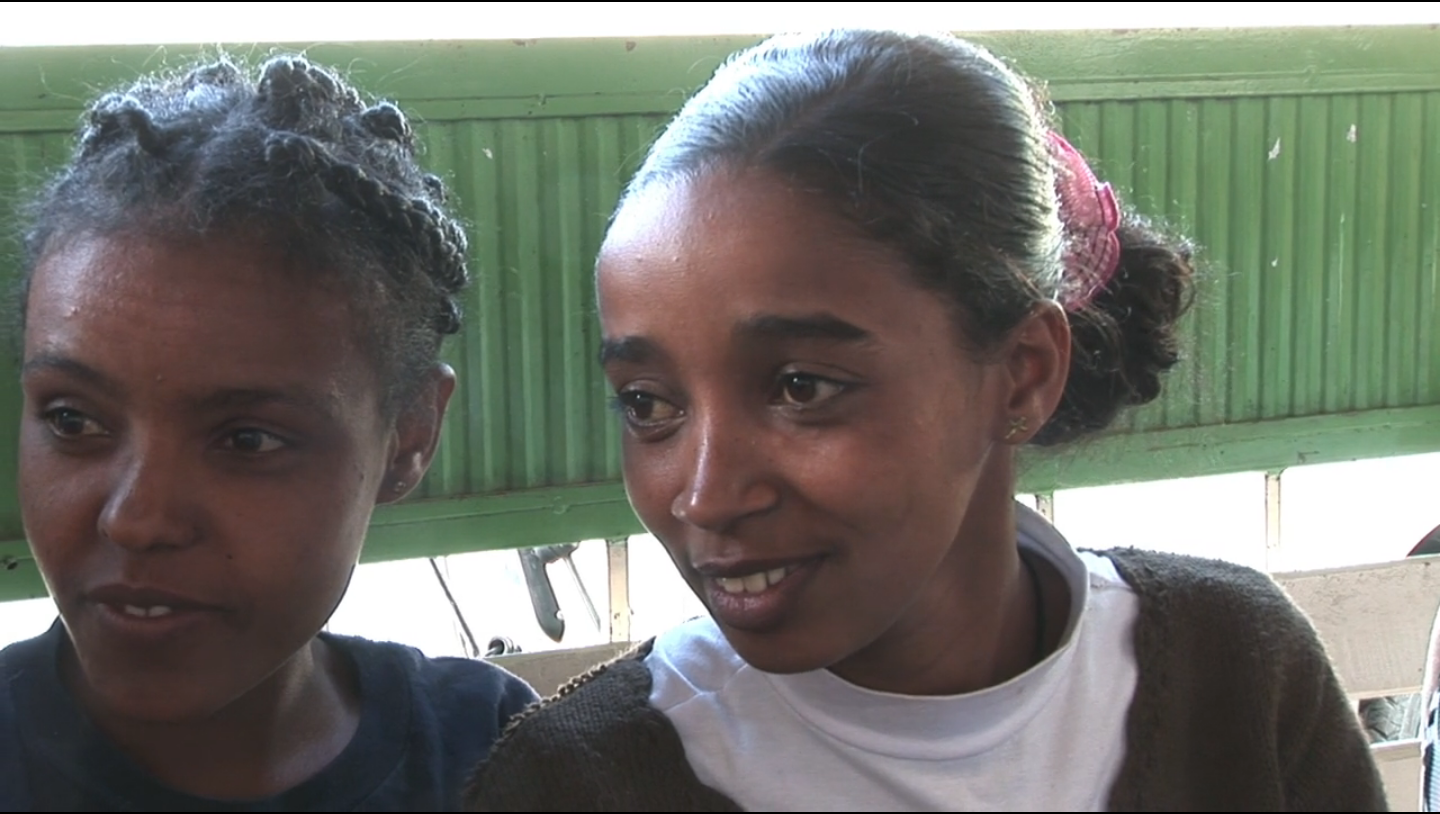
IPPF at the She Decides Conference, Brussels, 2017
In response to President Trump's reinstatement of the Global Gag Rule 50 countries and leading civil society organizations rallied together. The aim of the She Decides Conference was for these governments to reaffirm their commitments to sexual and reproductive health and rights. These are human rights which are now at risk around the world because the Global Gag Rule blocks critical USAID funding to health organizations like IPPF. IPPF is losing $100m in funding from USAID which means programs to deliver life-saving health services will be jeopardised. With increased commitments from other leading governments around the world, civil society organizations like IPPF can continue to provide the access to service and information that millions of women need.
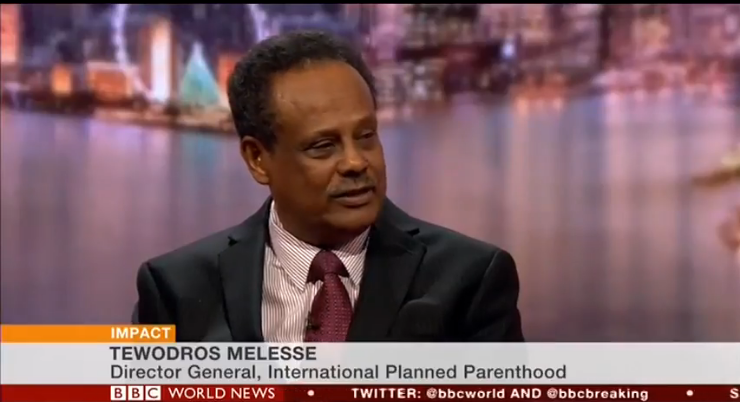
IPPF defends UN agency on BBC World News
IPPF Director General Tewodros Melesse has defended the record of the United Nations Population Fund (UNFPA) in an interview with BBC World News, the BBC’s global television news channel. Speaking to presenter Philippa Thomas on the programme “Impact”, Mr Melesse rubbished claims from the Trump administration – used to justify the withdrawal of US funding – that UNFPA in any way supported coercive family policies in China. He explained that IPPF and UNFPA, with which IPPF partners across the world to provide vital reproductive health care for millions of women and girls – were committed to defending rights and increasing choice. He added that the loss of funding to UNFPA and IPPF – through the re-imposition of the so-called Global Gag Rule by President Trump – would cost the lives of tens of thousands of women and lead to millions of additional unplanned pregnancies and unsafe abortions. Subscribe to IPPF's updates!

IPPF defends UN agency on BBC World News
IPPF Director General Tewodros Melesse has defended the record of the United Nations Population Fund (UNFPA) in an interview with BBC World News, the BBC’s global television news channel. Speaking to presenter Philippa Thomas on the programme “Impact”, Mr Melesse rubbished claims from the Trump administration – used to justify the withdrawal of US funding – that UNFPA in any way supported coercive family policies in China. He explained that IPPF and UNFPA, with which IPPF partners across the world to provide vital reproductive health care for millions of women and girls – were committed to defending rights and increasing choice. He added that the loss of funding to UNFPA and IPPF – through the re-imposition of the so-called Global Gag Rule by President Trump – would cost the lives of tens of thousands of women and lead to millions of additional unplanned pregnancies and unsafe abortions. Subscribe to IPPF's updates!

IPPF responds to the announcement of funding from the Government of Japan
IPPF’s Director General, Tewodros Melesse, has paid tribute to the Government and people of Japan, following the announcement that Japan will support the provision of sexual and reproductive health and rights (SRHR) for 2017. The Japanese Government has announced that it will contribute approximately 3.1 billion yen (roughly $28 million) to IPPF and the United Nations Population Fund (UNFPA) in annual support. Mr Melesse said: “IPPF is grateful for Japan’s continuing support to SRHR through funding IPPF and UNFPA. Particularly in the current negative climate around SRHR, Japan’s expression of its strong will to continue its support for SRHR is warmly welcome.” “Japan’s long-lasting support for IPPF and for sexual and reproductive health care and rights has always been appreciated. These funds will help IPPF member associations around the world mitigate the cuts in funding we are seeing from some other sources. This will help protect health and save the lives of many people, especially women and girls.” Mr Melesse added: “We agree completely with the Government of Japan when it says that the provision of services relating to sexual and reproductive health and rights is essential for realizing universal health coverage (UHC), that ensures affordable access to basic health services for all whenever they need them throughout their lives. This is stated clearly in the Basic Design for Peace and Health, Japan’s global health policy and one of the outcome documents of the G7 Ise-Shima Summit, as well as in an outcome document from the The World Assembly for Women in Tokyo 2016 (WAW), the Third United Nations World Conference on Disaster Risk Reduction and the Sixth Tokyo International Conference on African Development (TICAD VI). IPPF would like to congratulate Japan’s leadership and commits to working closely with the Government of Japan to make a real difference to the lives of women, men and young people in around world and to achieve the Strategic Development Goals.” IPPF received approximately $1.13m from Japan in early 2017 for its activities targeted to Syrian refugees and internally displaced people, and will receive funding of $7.76m which was recently approved by the Japanese Parliaments.
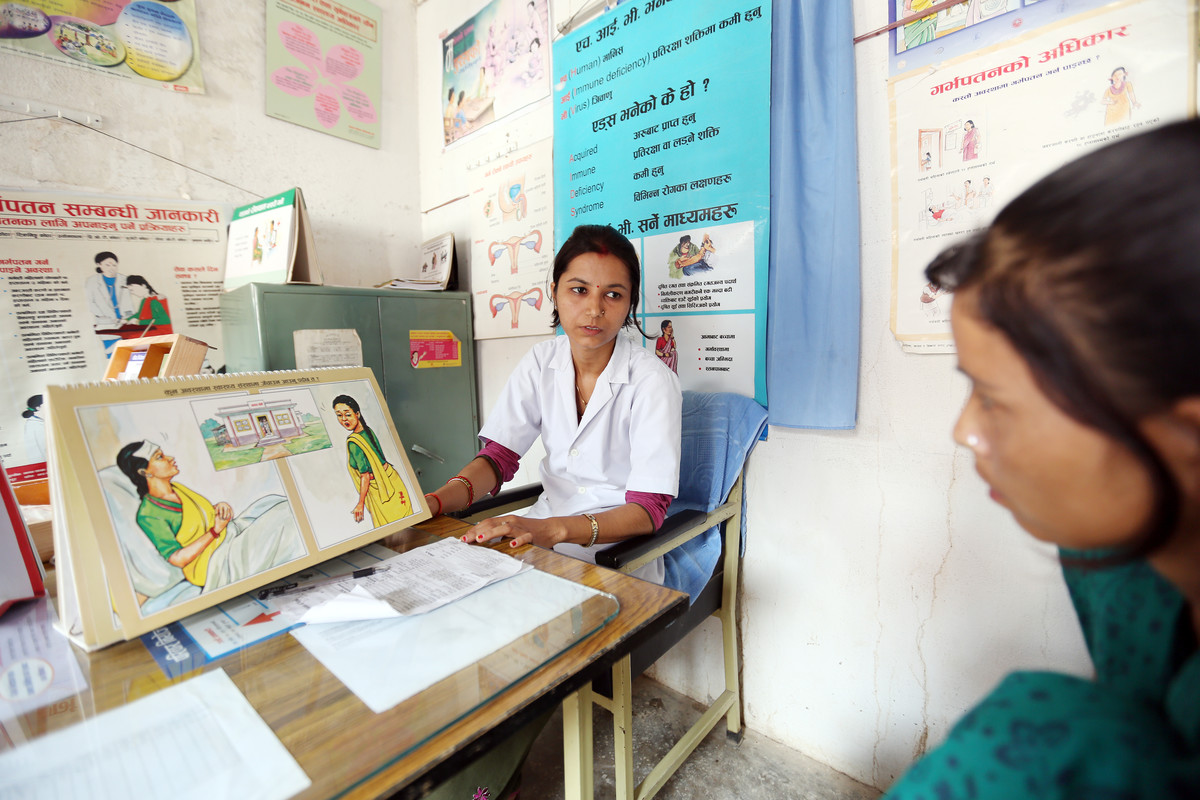
A roll back on women’s rights? The impact of the global gag rule
The Commission on the Status of Women (CSW) is a functional commission of the United Nations Economic and Social Council (ECOSOC). It is the principal global policy-making body dedicated exclusively to gender equality and advancement of women. IPPF convened a panel at CSW61 to examine the far-reaching implications of the US government's Global Gag Rule on the advancement of women’s rights globally. To open the meeting, IPPF provided context to the sexual and reproductive health and rights (SRHR) agenda, reminding us primarily of the huge strides made in recent years on women’s access to SRHR. With an increased policy focus on rights, significant drops in maternal mortality, systematic screening of gender-based violence at health facilities, increased uptake of family planning and post primary school retention of girls, women globally are more empowered to access their rights than ever before. However, recent political shifts have significantly changed the global landscape which could see these rights severely compromised if not removed entirely. IPPF provided an overview of the pivotal policies that have marked this shift, most notably the Global Gag Rule (GGR) passed by the Trump administration in January 2017 - an Executive Order which sees U.S. funding denied to health organizations if they use money from other donors to provide abortion services, counselling or referrals. This is accompanied by other damaging policies such as the application of the Kemp-Kasten amendment that could see funding for UNFPA, the world’s largest supplier of contraceptives, dramatically cut. This is despite evidence showing that the implementation of the GGR under previous Republican administrations did not reduce the number of unsafe abortions; rather, by eliminating access to contraception, it led to more unintended pregnancies and more unsafe abortions. IPPF also highlighted that it is the most vulnerable women who will suffer most from these policies: they will hit women living at the margins of society hardest – the poorest, women of colour, disabled women, the most remote and those under 25. And it is not just women’s access to SRHR that's at stake; panelists offered perspectives on how the Global Gag Rule and its potential chilling effect could impact upon their work. Amnesty International UK outlined the ways in which the Global Gag Rule could increase stigma around abortion and bolster the anti-choice movement. Cutting support to reproductive health sends a clear ideological message on abortion and could serve to embolden ultra conservative, anti-choice and anti-rights attitudes, causing a rollback on women’s rights. This in turn could undermine women’s rights organisations including violating their right to freedom of speech, association, and their ability to participate in the strengthening of their civil societies and holding their governments to account. Action Aid advised that the reduction in sexual and reproductive health services could also impact upon gender-based violence. They used the example of a series of women’s shelters that they set up in Uganda in partnership with UNFPA to support women escaping domestic violence and rape; the cuts experienced by UNFPA will likely mean these shelters are forced to close down despite the fact they are in no way related to abortion or the provision of reproductive health services. In light of this, Action Aid stressed the need to invest in and support local women's rights organisations who can take on the role of providing shelter and refuge as it is being retracted elsewhere. JustActions added to the debate by highlighting the extent to which policies like the Global Gag Rule could undermine the achievement of several of the new Sustainable Development Goals (SDGs). When you restrict women’s access to products and services that affect their sexual and reproductive health, it is harder to reduce poverty (SDG 1) and hunger (SDG 2), and is pretty much impossible to improve women’s health (SDG 3), education (SDG 4) and achieve gender equality (SDG 5). Economic growth and sustainability (SDG 8/9) will also suffer as lack of access to SRH impacts upon women's ability to work and it will therefore be harder to close income inequality gaps (SDG 9). That’s almost half of the 17 SDGS compromised right there. McCann Health, a global communications agency, suggested that in order to better focus attention on these issues and build public support, we need to reach out to sympathetic private sector partners and new communications platforms that could help us make our case to a different audience. Whether through social media based initiatives or formal events and protests, clear and loud communications that are accessible to everyone, do make a difference in the national and global discussion. Intersectionality, partnership and moving forward So what can we take from this? The fact that such a diverse range of organizations, some of whom do not even work on SRHR, came together in this high-profile, global space to speak out on the danger of these policies demonstrates just how wide-ranging and profound the implications could be. It also highlights the intersectionality of the issues at stake; it is very difficult to move towards women’s economic, political and social empowerment without access to sexual and reproductive rights and vice versa. This calls for a more holistic approach to women’s empowerment that does not isolate issues but acknowledges interlinkages and looks to foster cooperation and partnership where possible; be it through advocacy, campaigns or programmes. Perhaps most importantly, the impassioned speeches given by senior representatives from influential CSOs and the private sector calling for a progressive SRHR agenda show us that whilst the policy landscape is changing, so is our support base. And whilst the GGR may loom large on our horizon, we also see a groundswell of organisations, individuals and governments rising up in support of those who will be affected, and exploring ways to mitigate the financial and human cost of this policy. Ultimately this panel was about solidarity. Solidarity in the face of adversity. Solidarity for progress. Solidarity for human rights. And solidarity for women everywhere. And that at the very least is what CSW should foster. Long may it do so. WANT TO GET INVOLVED? SUBSCRIBE NOW TO GET UPDATES FROM IPPF SUPPORT OUR WORK WITH A DONATION
Pagination
- Previous page
- Page 13
- Next page







